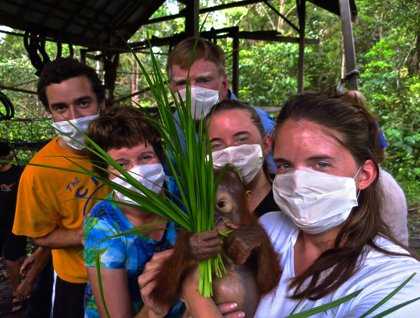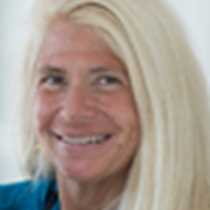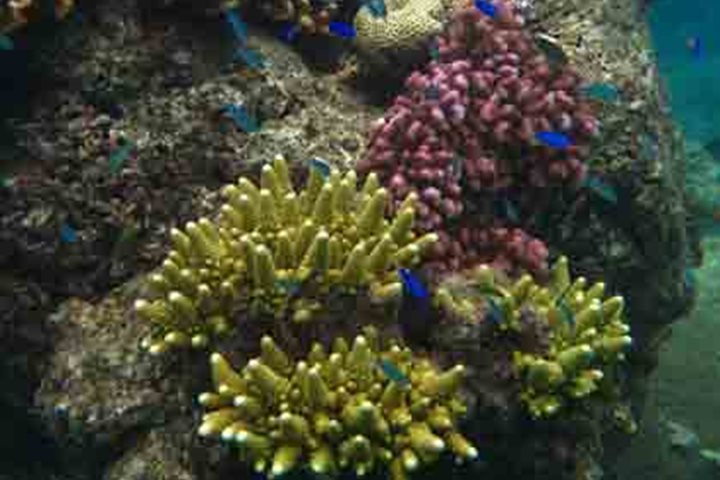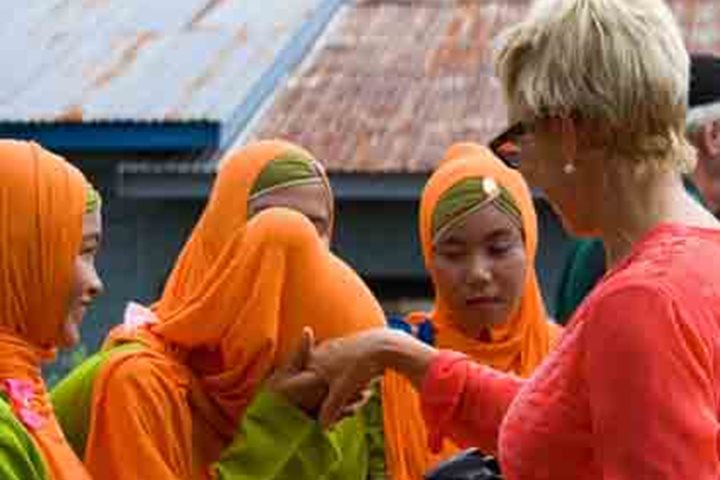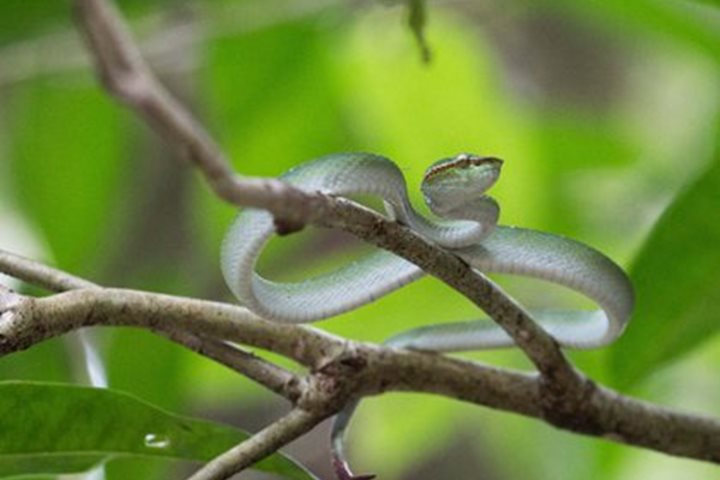They say to always save the best for last. On board the National Geographic Orion we have become an exceptionally close group of shipmates, much like an extended family. We have laughed, learned, and explored together, sometimes standing in a torrential downpour, and sometimes simply standing in the rainforest in our own torrential sweat! On this, our last full day of exploration ashore, we have the pleasure and privilege of visiting the home of Dr. Biruté Mary Galdikas and her extended primate family.
For over four decades Dr. Galdikas has been living amongst, studying, and caring for orangutans. Hers has been the clear voice of reason in a part of the world that has come increasingly under extreme pressures to exploit the riches of the rainforest here in Borneo. Illegal logging, combined with palm oil plantations stripping the native growth have decimated huge tracks of rainforest vital for orangutan survival.
Just this morning her team relocated a wild mature male orangutan, which had wandered from the rainforest into a palm oil plantation and had destroyed fifty palm oil trees. Of course the owners of the plantation were livid, wanting to immediately end the life of this threat to their investment. Biruté’s team successfully negotiated on behalf of the great ape, and so far the story has a happy ending. But the orangutan plight is far from over, as more and more land is lost to logging and development for palm oil. Dear reader, please consider the consequences of your choice to purchase products with palm oil in them. By avoiding these products, you are telling the people and government of Indonesia, as well as the world, that orangutans everywhere matter.
Orangutan Foundation International staff members escorted us into the Orangutan Care Center and Quarantine, whose primary function is the rehabilitation and release back into the wild of rescued orangutans. It quickly became apparent that these highly intelligent primates, who share 97% of our own DNA composition, were as curious about us as we were about them. Connecting on such a personal level with distant relatives is always a family highlight.
This afternoon we were invited into another extended family as traditional Dayak dancers and musicians performed for us in their long house. The drum beats and piercing calls stirred our imaginations and piqued our curiosity into this native culture. The dances were beautifully choreographed and the costumes colorful and elaborate. Our performers ranged in age from young children to village elders and everything in between. The pride and the sense of family was tangible and this message was resoundingly clear despite our differences in language. Throughout the world, we are stronger collectively than we are individually.

